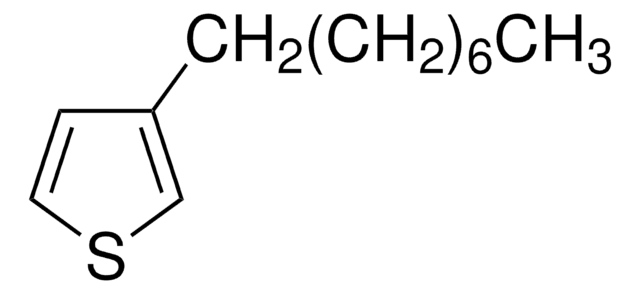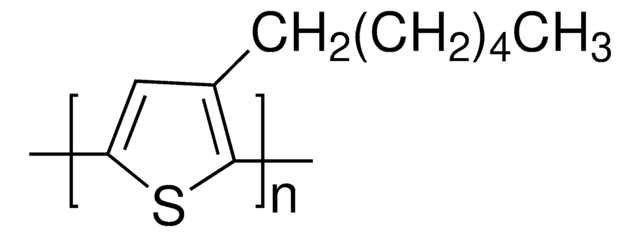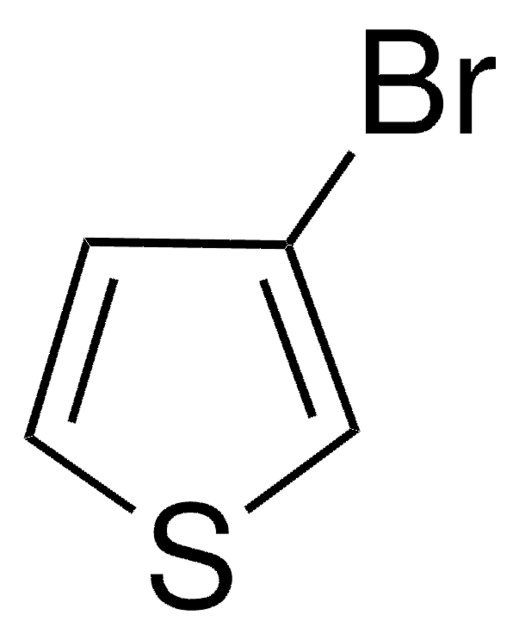399051
3-Hexylthiophene
≥99%
Synonym(s):
3-Hexylthiophene
About This Item
Recommended Products
Assay
≥99%
form
liquid
refractive index
n20/D 1.496 (lit.)
bp
65 °C/0.45 mmHg (lit.)
density
0.936 g/mL at 25 °C (lit.)
SMILES string
CCCCCCc1ccsc1
InChI
1S/C10H16S/c1-2-3-4-5-6-10-7-8-11-9-10/h7-9H,2-6H2,1H3
InChI key
JEDHEMYZURJGRQ-UHFFFAOYSA-N
Looking for similar products? Visit Product Comparison Guide
Related Categories
General description
Application
Signal Word
Warning
Hazard Statements
Precautionary Statements
Hazard Classifications
Acute Tox. 4 Dermal - Acute Tox. 4 Inhalation - Acute Tox. 4 Oral - Eye Irrit. 2 - Flam. Liq. 3 - Skin Irrit. 2 - STOT SE 3
Target Organs
Respiratory system
Storage Class Code
3 - Flammable liquids
WGK
WGK 3
Personal Protective Equipment
Certificates of Analysis (COA)
Search for Certificates of Analysis (COA) by entering the products Lot/Batch Number. Lot and Batch Numbers can be found on a product’s label following the words ‘Lot’ or ‘Batch’.
Already Own This Product?
Find documentation for the products that you have recently purchased in the Document Library.
Customers Also Viewed
Our team of scientists has experience in all areas of research including Life Science, Material Science, Chemical Synthesis, Chromatography, Analytical and many others.
Contact Technical Service













